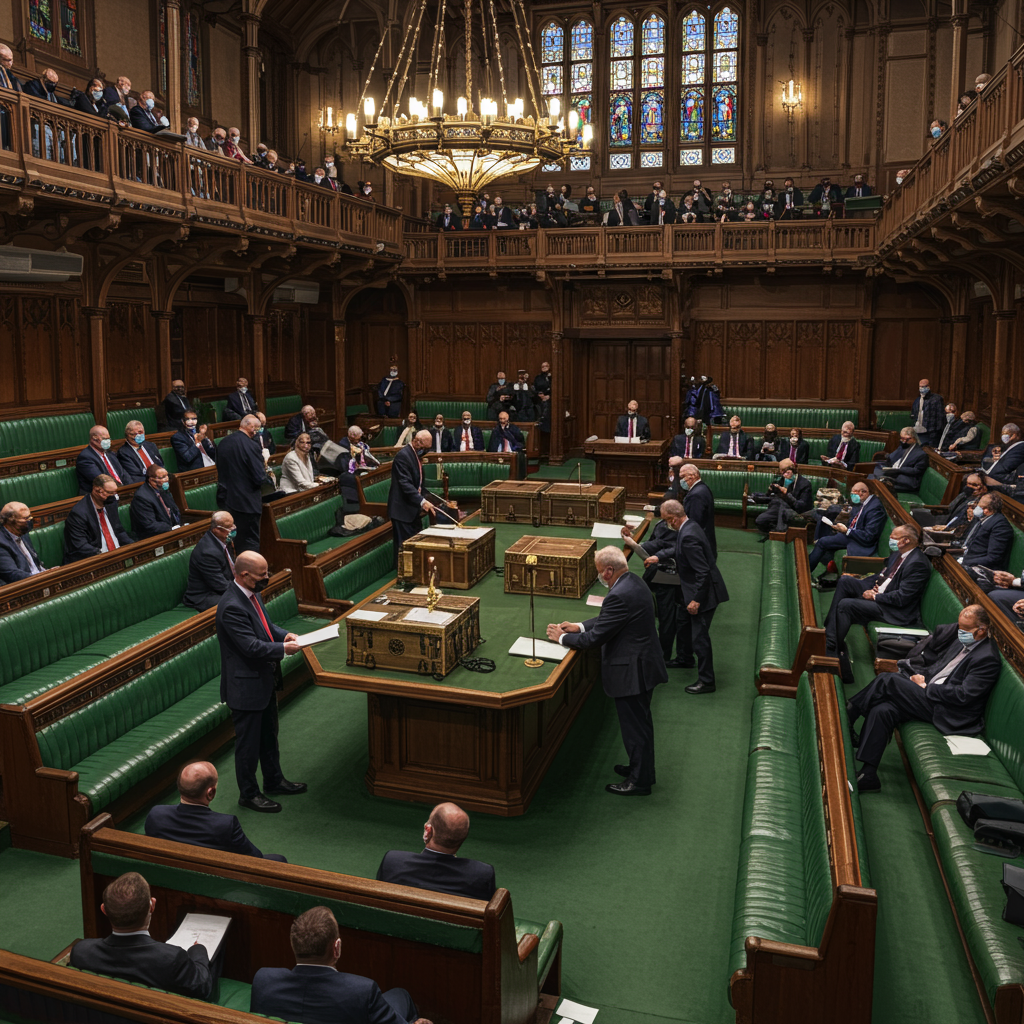UK Parliament Approves Landmark Assisted Dying Bill
The UK House of Commons has voted in favour of a groundbreaking bill that could legalise assisted dying for eligible terminally ill adults in England and Wales. This marks a significant legislative milestone, potentially representing the country’s most profound social policy shift since the partial legalisation of abortion in 1967.
The “Terminally Ill Adults (End of Life)” bill successfully passed its crucial third reading in the lower chamber on Friday, with Members of Parliament voting 314 to 291 in support – a majority of 23. This follows an earlier vote in November where the bill passed in principle with a wider margin of 330 to 275, suggesting some shifts in opinion among lawmakers in recent months.
The passage through the Commons is seen as a “landmark moment” and a day for the “history books” by proponents, propelling the legislation towards potentially transforming end-of-life care options in the country.
What the Proposed Law Would Do
If enacted, the bill would grant mentally competent adults aged 18 and over in England and Wales who have received a terminal diagnosis with a prognosis of six months or less to live the legal right to end their lives with medical help.
A critical provision requires the patient to be capable of administering the fatal medication themselves. The process would involve a rigorous approval system requiring sign-off from two doctors and a specialist panel. This panel is set to include a psychiatrist, a social worker, and a senior legal figure, a change from earlier proposals that had required court approval – a requirement removed following objections from legal professionals.
The Bill’s Journey and Next Steps
Having cleared its biggest hurdle in the elected House of Commons, the bill now moves to the unelected House of Lords for further scrutiny. While the upper chamber can amend or delay the legislation, it is generally hesitant to block a bill that has received significant support in the Commons.
The debate surrounding the bill has been intensely emotional and divisive, both within Parliament and across the UK. Notably, the vote in the Commons was a free vote, allowing MPs to vote based on their conscience rather than party lines. This led to a split even within the government cabinet, with Prime Minister Keir Starmer voting in favour, while Health Secretary Wes Streeting and Deputy Prime Minister Angela Rayner voted against it.
Arguments For: Choice, Dignity, and Ending Suffering
Supporters argue that the legislation offers a compassionate and safe choice for individuals facing unbearable suffering at the end of their lives. They contend that denying this option perpetuates a profound injustice, forcing terminally ill individuals to endure prolonged pain or seek desperate measures.
Labour MP Kim Leadbeater, who sponsored the bill, emphasised that the choice is about how terminally ill people die, not if, and that rejecting the bill is not a neutral act but a vote to maintain a status quo causing immense suffering. Campaign groups like Dignity in Dying celebrated the vote, highlighting the importance of choice and dignity. Personal testimonies, such as that of 82-year-old David Walker who saw his wife suffer for years, and terminally ill campaigner Dame Esther Rantzen, underscored the human element behind the push for the law. Zoe Mead, a terminally ill woman planning to starve herself, shared her hope that the bill would prevent others from enduring such a fate.
Arguments Against: Concerns Over Safeguards and Vulnerability
Opponents voice serious concerns that the bill, despite proposed safeguards, does not adequately protect vulnerable individuals, including the disabled, elderly, and those with mental health conditions, autism, or learning disabilities. Fears of coercion, either explicit or feeling like a burden on family or society, are prominent among critics.
Groups like Not Dead Yet UK and Disability Rights UK expressed devastation, arguing the bill sets a “dangerous” precedent and risks “ripping choice away from others” by creating pressure on vulnerable individuals. Doctor Elizabeth Burden warned of a “slippery slope” that could open a “floodgate.” Religious leaders like the Bishop of London argued the bill is “unworkable and unsafe,” particularly given existing shortfalls in social and palliative care, suggesting state funding might support assisted dying while only partially funding palliative care services. Critics like former Foreign Secretary James Cleverly questioned whether safeguards were truly sufficient, citing concerns from professional bodies like the Royal College of Psychiatrists. Opponents also highlight the fundamental shift in the state’s relationship with life and death that such a law represents.
Strengthening Safeguards and Future Implementation
Following debate and scrutiny, several amendments were passed or discussed to enhance protections within the bill. These include mandating independent advocates for vulnerable individuals with learning disabilities, autism, or mental health conditions, and establishing a disability advisory board. A clause was also added to explicitly ensure no person, including social care workers and pharmacists, is obliged to participate in assisted dying if they have conscientious objections. Criminal sanctions are in place for any family members found to be coercing someone. An amendment was also passed to prevent individuals refusing food and water from being classified as terminally ill under the law, although potential loopholes were noted, and a report on the state of palliative care was commissioned.
While proponents express confidence in the bill’s “extremely thorough, extremely robust” safeguards, opponents remain unconvinced that they eliminate the risk of vulnerable individuals being pressured.
Public Support and International Context
Public opinion polls indicate strong support for changing the law, with a YouGov poll last month showing 73 percent of adults in favour. The divisive nature of the issue was visible in protests outside Parliament on the day of the vote, with demonstrators holding placards representing both sides of the emotional debate.
If the bill becomes law, the UK would join a growing list of countries and jurisdictions that permit some form of assisted dying, including Australia, Canada, and several states in the United States. It’s important to note the distinction between assisted suicide, where the patient self-administers the lethal substance (as proposed in the UK bill), and euthanasia, where a healthcare professional administers it, which is legal in countries like the Netherlands and Belgium under specific conditions. Data from these countries shows rising numbers of euthanasia deaths annually.
The bill does not currently apply to Scotland or Northern Ireland, where legislative processes on assisted dying may follow separate paths.
The government and NHS have been given an estimated four years to implement the law if it passes the House of Lords and receives Royal Assent, though proponents hope it could take effect sooner. Questions remain regarding whether the service would be provided by the NHS or private providers and whether it would be free at the point of use. The passage through the Commons marks a significant step, but the bill faces further debate and potential challenges in the House of Lords before it could fundamentally change end-of-life choices for thousands of people.


